English Reading Subject Leader: Mrs S Robins
At Cliffe Woods Primary School, English reading is given top priority and is a key driver for our curriculum.
Intent
At Cliffe Woods Primary School, we value reading as a crucial life skill. The teaching of reading is at the very core of our curriculum. It is our intention to ensure that by the end of their primary education, our pupils can read fluently and with confidence, enabling them to access all areas of the curriculum and the wider world.
We are committed to providing a broad and diverse range of texts and books from across the curriculum which is rich in vocabulary. The sharing of stories is central to our provision throughout the school, so children enjoy both reading and being read to as part of our daily timetable.
Our children are inspired by a range of authors and poets and exposed to a wide range of modern and classic literature, as well as texts that reflect the realities of the children in our classrooms and beyond.
We endeavour to introduce pupils to more complex and demanding texts, therefore we have incorporated into our English curriculum a variety of key texts that allow exposure to and the exploration of five main themes. These are chosen to be appropriate to the year group and cover the following: archaic language, non-linear time sequences, complex narrative, symbolic or figurative text and resistant.
By the time our children leave us, they read confidently, for meaning and regularly enjoy reading for pleasure. Our readers are equipped with the tools to tackle unfamiliar vocabulary. We encourage our children to see themselves as readers for both pleasure and purpose.
We aim to provide our children with essential opportunities so they can develop:
- Excellent phonic knowledge.
- Fluency and accuracy in reading a wide range of contexts across the curriculum.
- Knowledge of an extensive and rich vocabulary.
- Excellent comprehension of texts.
- The motivation to read for both study and pleasure.
- Extensive knowledge through having read a rich and varied range of texts.
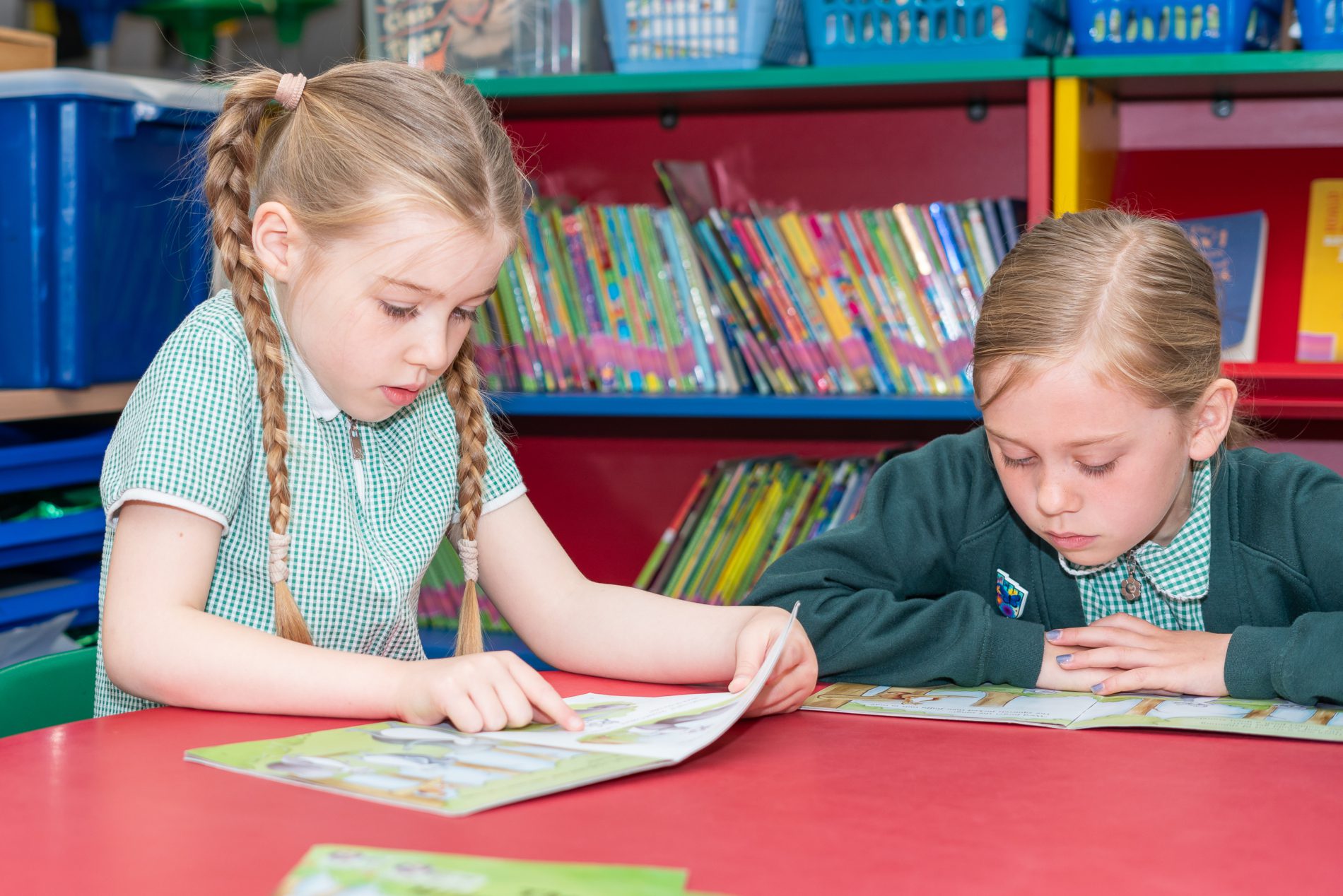
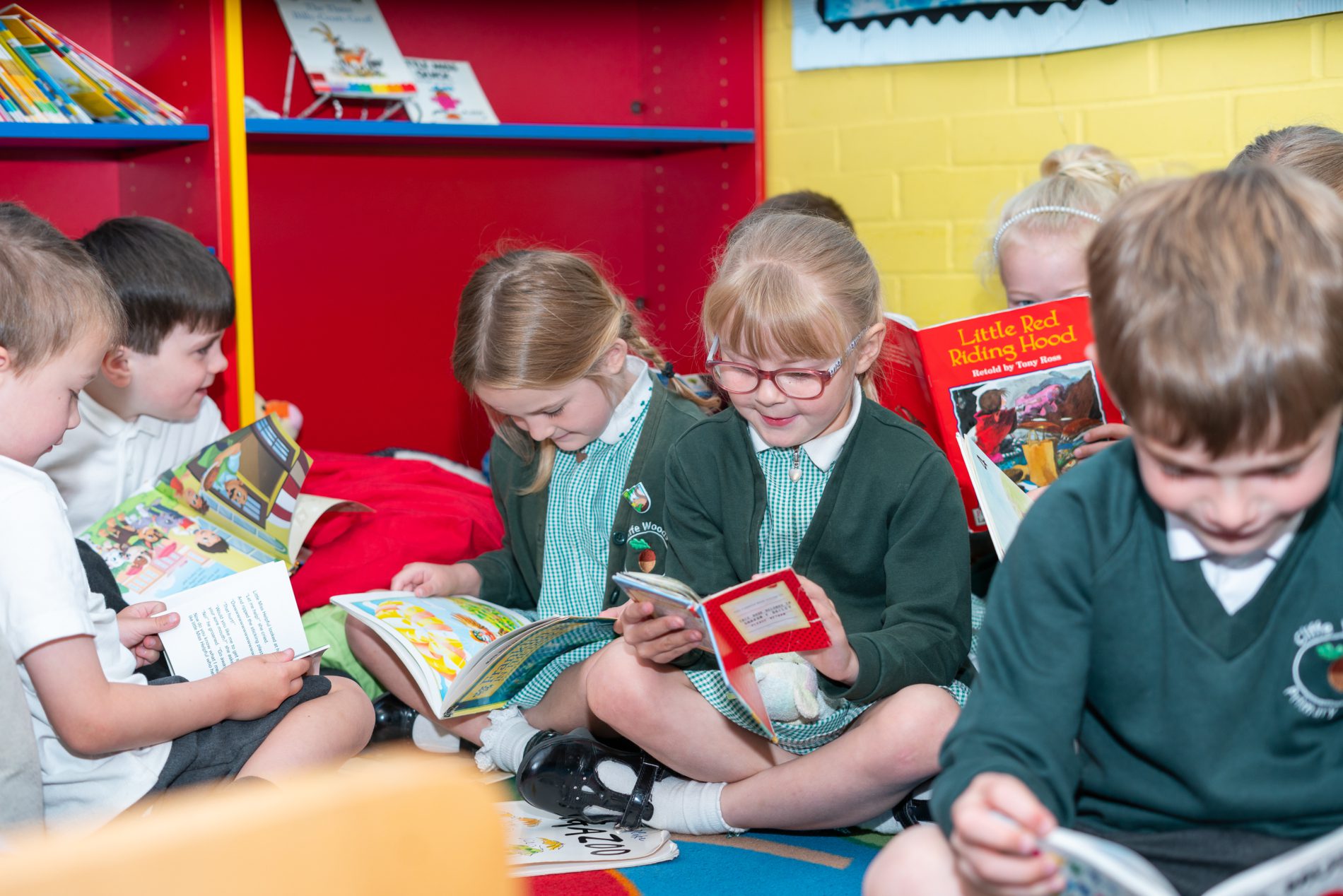
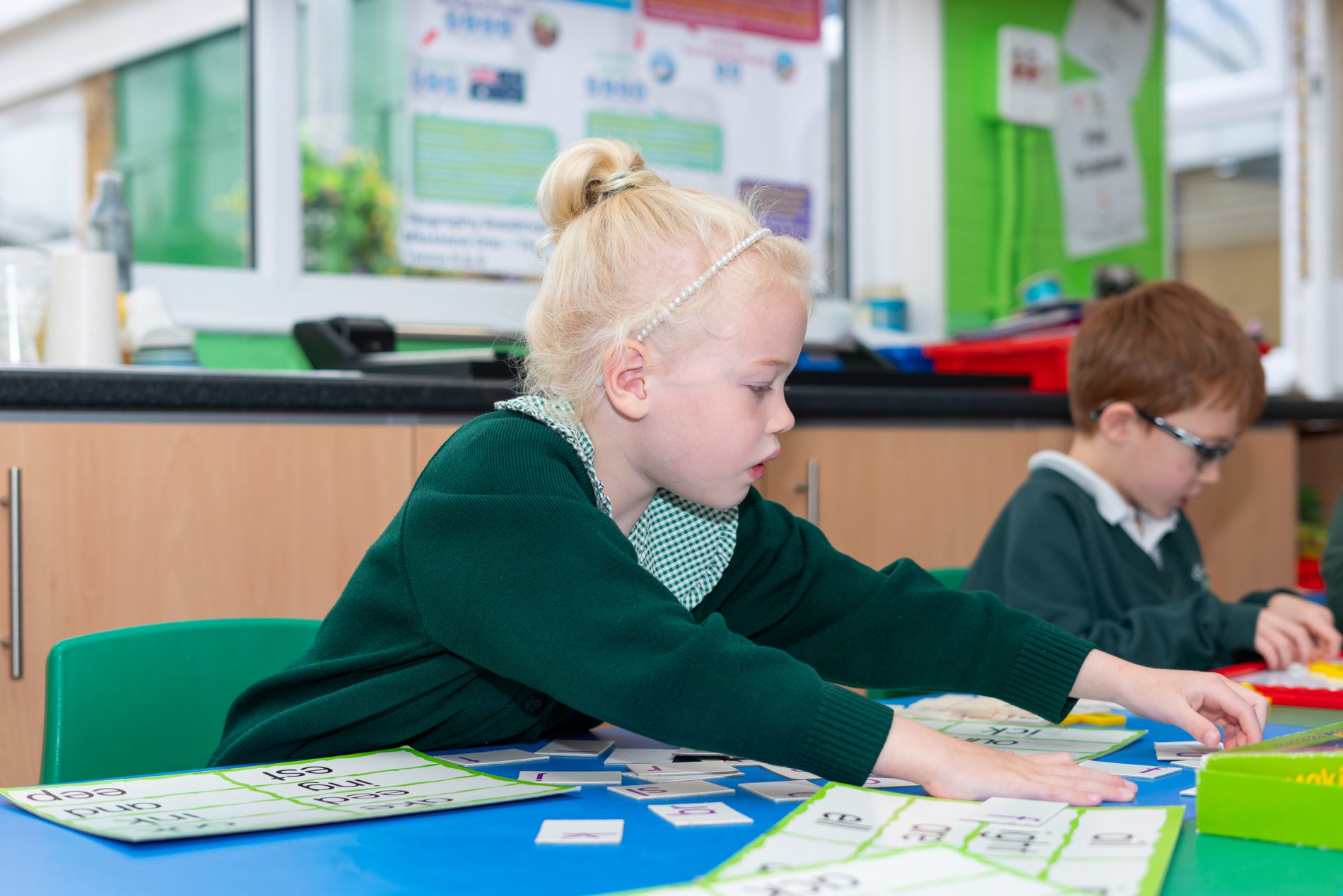
Implementation
The systematic teaching of phonics is of the highest priority through Early Years Foundation Stage and Key Stage One. In Cliffe Woods Primary School we follow Little Wandle Revised Letters and Sounds to ensure that all our phonics lessons are taught with consistency. Our teachers draw upon observations, and continuous and summative assessments to ensure children are stretched and challenged, and to identify children who may need additional support. Timely intervention is planned for those children who are working below expected levels as soon as their needs are identified.
In Foundation Stage and early Key Stage 1, children follow the Big Cat Phonics for Little Wandle reading scheme, which introduces pupils to keywords in an order that supports their learning in phonics. These books may also be supplemented by other fully decodable books.
Those pupils needing additional support in Key Stage 2, continue to read highly decodable, age-appropriate books from the Big Cat reading scheme.
Reading takes place throughout the school day and may be as part of a guided reading group or individually.
We actively encourage the children to read frequently at home and promote the importance of reading through our participation in various local reading initiatives and competitions. We use Book Week and other country -wide events to develop children’s love of books and reading for enjoyment. We are regularly visited by authors, oral story tellers and poets to inspire our children.
Comprehension is taught explicitly and may happen in either a group or whole class activity. Our pupils are encouraged to explore and discuss new vocabulary, practise inference and prediction or summarise and retrieve information.
Teachers read regularly to their class to model the reading process, again introducing and exploring aspects such as inference and deduction, as well as grammatical and punctuation conventions. Poetry and play reading is taught with an awareness of the final performance. Analysis and comprehension activities using real texts are used to develop confidence of these areas.
Our pupils can become school ‘Reading Ambassadors’. Within this role, they promote a love of reading, support pupils by providing book recommendations and work with the English Lead, offering suggestions on how to further encourage reading for pleasure in our school.
Impact
As a result, we have a school culture where reading is championed, valued, celebrated and encouraged. Our pupils are motivated to read and curious to explore a range of texts and genres. This is evident when talking to our pupils and looking at their work.
High-quality phonics provision means our children make good progress from their starting points and this is continued as they move through the school. Attainment in phonics is measured by the Phonics Screening Test at the end of Year 1 and is also measured termly through the use of Little Wandle phonic assessments.
Statutory assessments are used to measure attainment in reading at the end of Key Stages One and Two. Ongoing teacher assessments along with more formal NTS tests are used to monitor and measure progress throughout the year.
We believe that reading should be at the heart of the curriculum and is of the utmost importance for a child’s personal, social and academic success, therefore our reading curriculum goes beyond the requirements for statutory assessments.
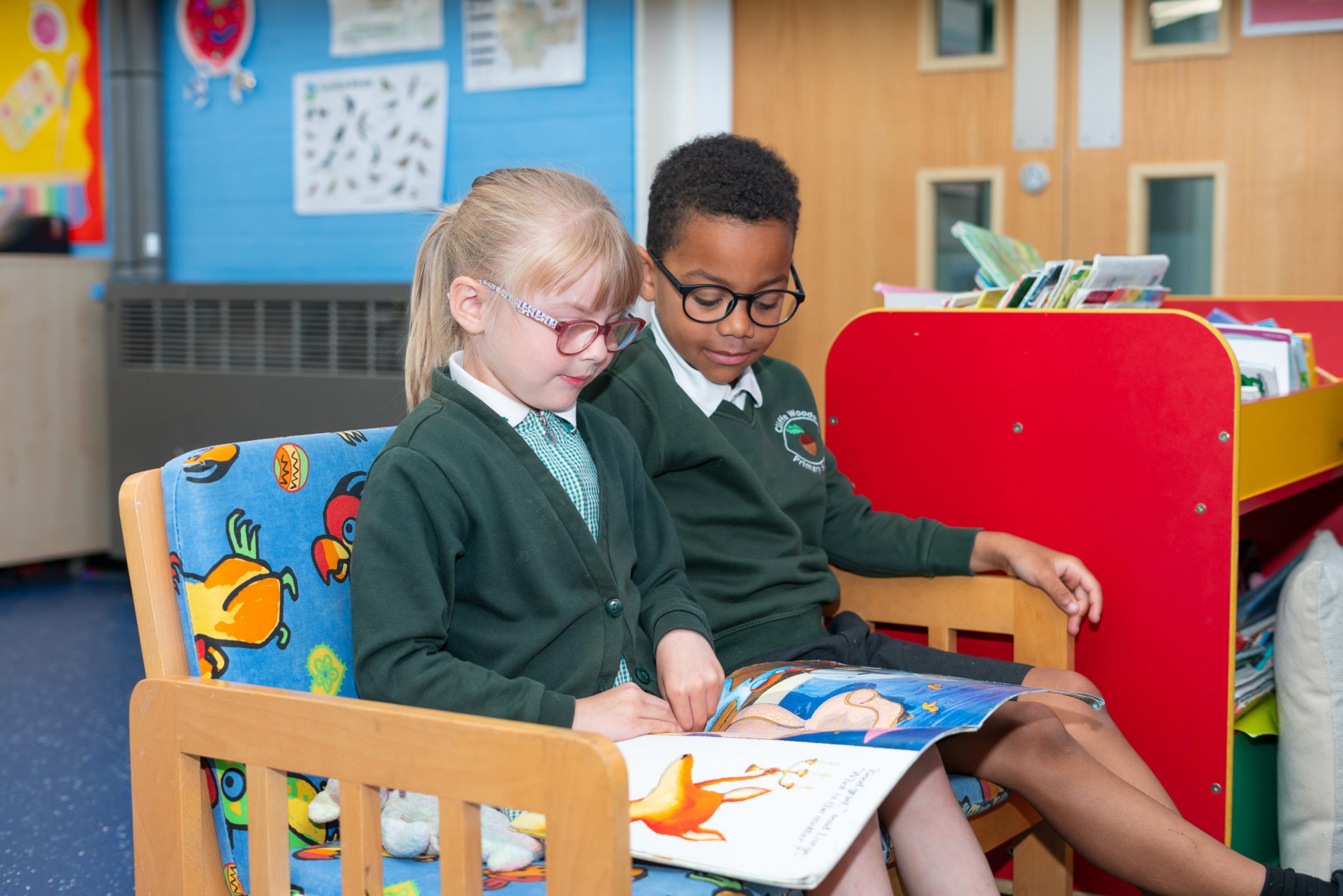
English Reading in Each Stage
It is crucial for children to develop a life-long love of reading. Reading consists of two dimensions: language comprehension and word reading. Language comprehension (necessary for both reading and writing) starts from birth. It only develops when adults talk with children about the world around them and the books (stories and non-fiction) they read with them and enjoy rhymes, poems and songs together. Skilled word reading, taught later, involves both the speedy working out of the pronunciation of unfamiliar printed words (decoding) and the speedy recognition of familiar printed words. Throughout the day back and fourth conversations and sharing of stories and rhymes are used to develop individual children’s attention, understanding and spoken language with a strong emphasis on extending vocabulary.
Children follow the Big Cat Phonics for Little Wandle reading scheme, which introduces pupils to keywords in an order that supports their learning in phonics.
A love of books is promoted through the continuous provision and extracurricular opportunities such as our Bedtime Stories event.
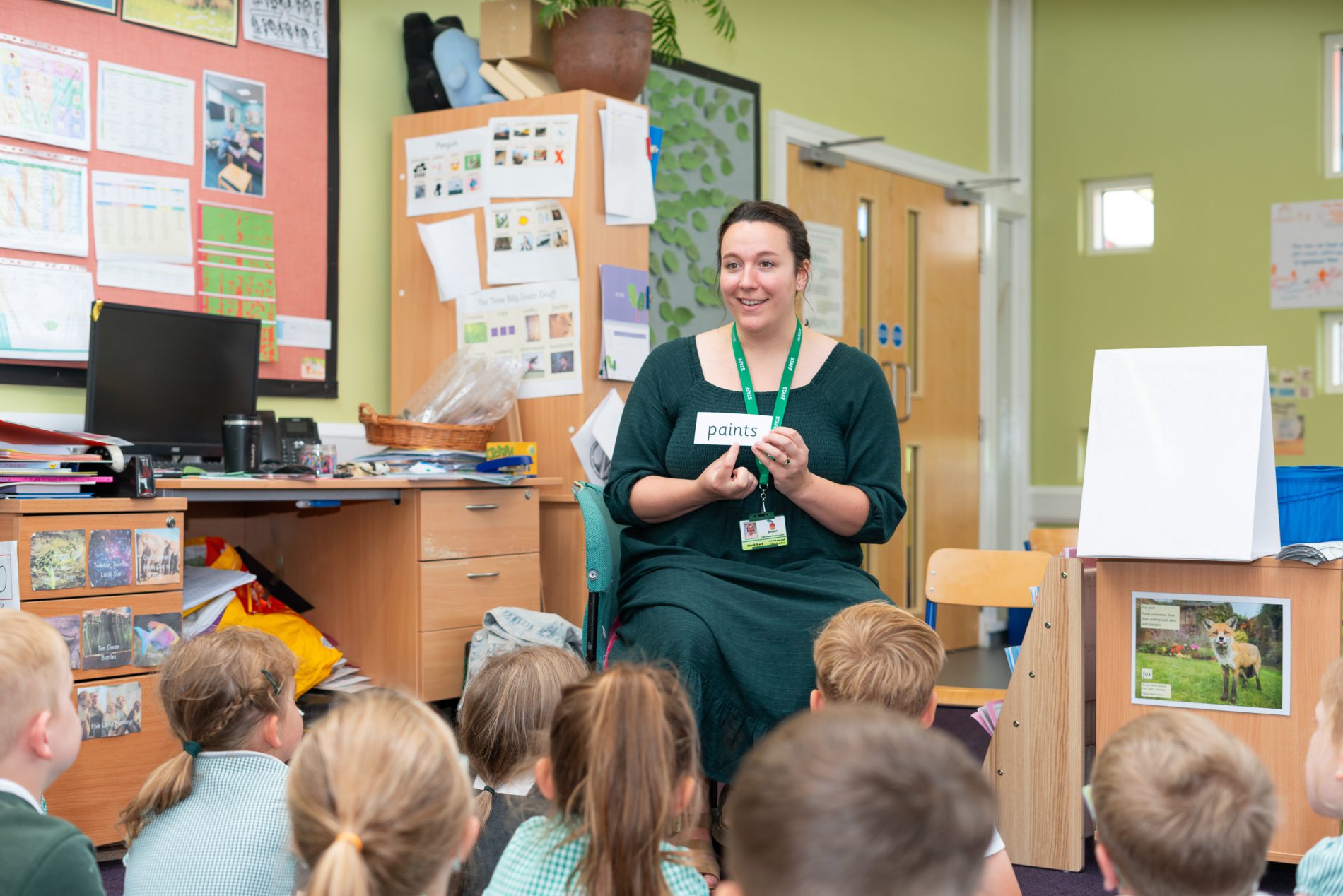
Children continue to follow the Big Cat Phonics for Little Wandle reading scheme. These books may also be supplemented by other fully decodable books.
As pupils continue to progress in reading, they move from the Little Wandle scheme and begin to choose from a wider range of books which are organised according to the child’s reading level, carefully directed and supported by the class teacher.
Children will be given the opportunity to:
- Listen to traditional tales.
- Listen to a range of texts.
- Learn some poems by heart.
- Become familiar with a wide range of texts of different lengths.
- Discuss books.
- Build up a repertoire of poems to recite.
- Use the class and school libraries.
- Listen to short novels over time.
The class teacher reads to the children at least once a day and children are given the opportunity to read books of choice during class ‘escape’ time where they are encouraged to lose themselves in a good book.
Children continue to take home scheme reading books where parents record progress at home. This helps to create a reading partnership with parents.
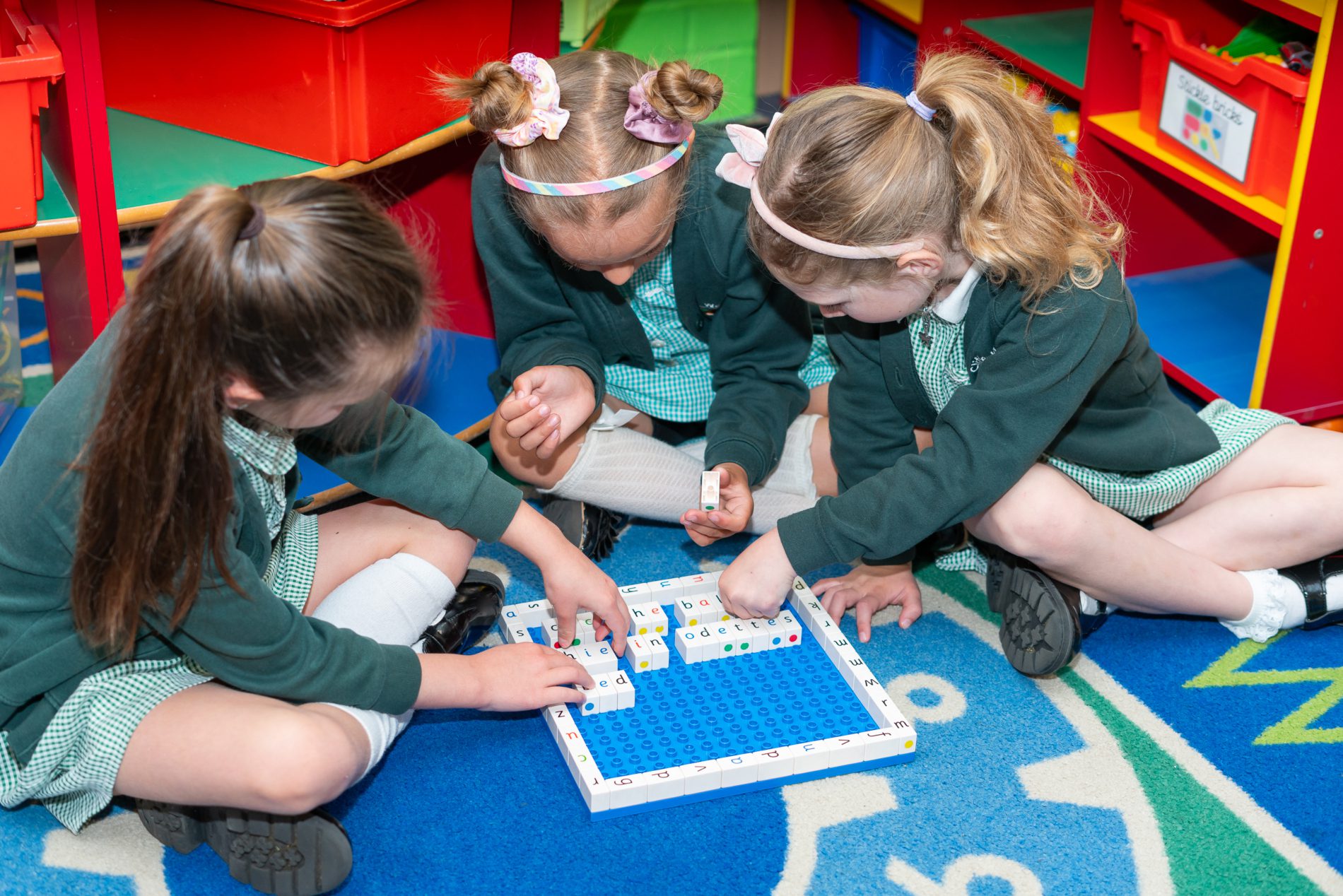
In Key Stage 2, reading takes place throughout the day and learning outcomes linked to reading are taught within English lessons and across the curriculum. Children are taught through the use of whole novels and teachers model reading daily. They learn and develop skills such as inference and deduction as well as grammatical and punctuation conventions.
Children will be given the opportunity to:
- Read and listen to a wide range of styles of texts, including fairy stories, myths and legends.
- Listen to and discuss a wide range of texts.
- Learn a wide range of poetry by heart.
- Take part in conversations about books.
- Read and listen to whole books.
- Look at books with a different alphabet to English.
- Look at classification systems.
- Use the school and community library.
- Increase familiarity with a wide range of books including, myths and legends, modern fiction, traditional stories, classic British fiction and books from other cultures.
Pupils are given the opportunity to explore poetry and script reading.
Pupils in Key Stage 2 are given the opportunity to visit a bookshop and select a book of their choice to read and then add to the school library.
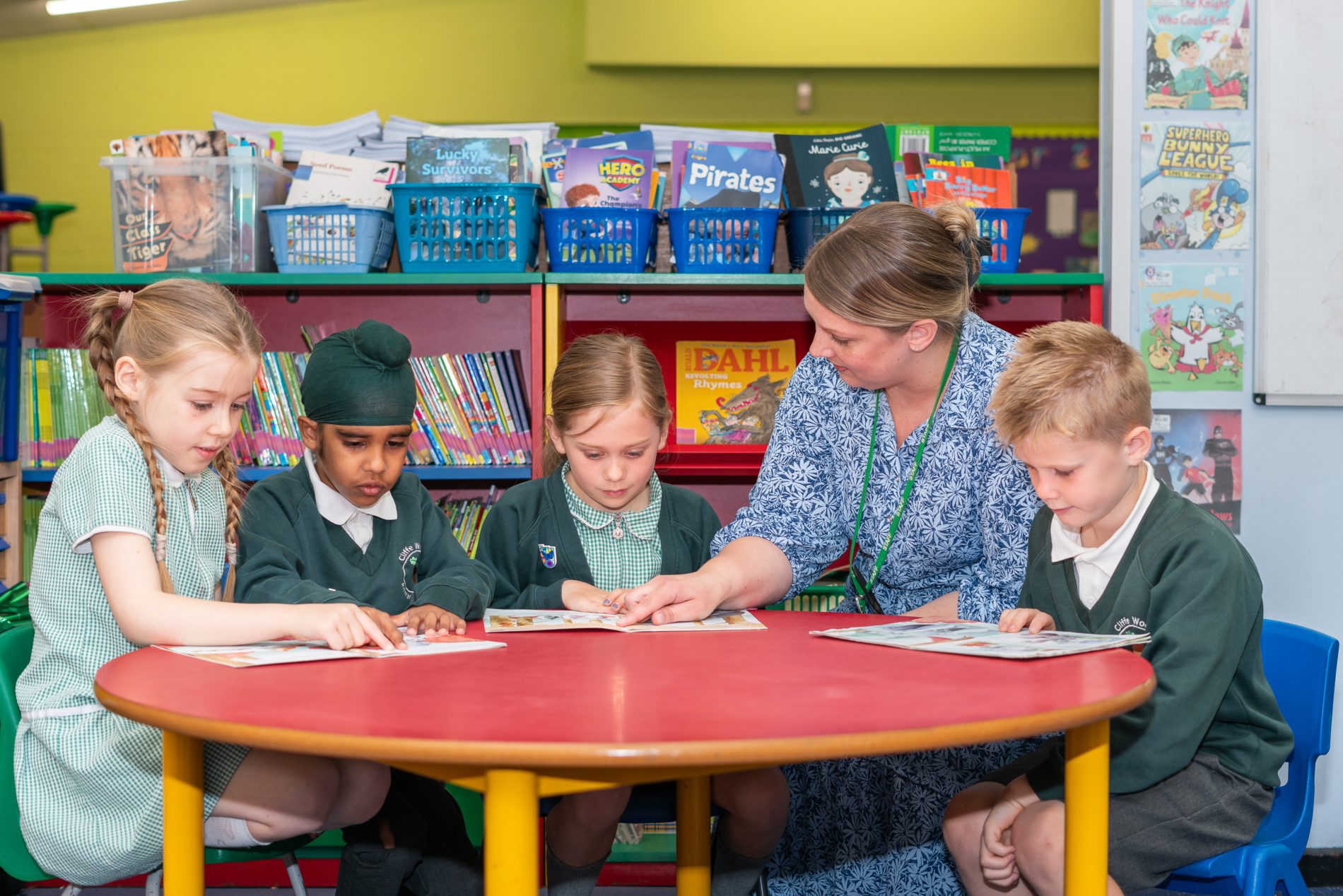
English Reading Progression
At Cliffe Woods, we develop our pupil’s English Reading through essential skills; growing their depth of knowledge year after year. Through the use of Reading Levels, we are able to monitor their progress and allocate extra support and adaptations to the curriculum for pupils to maintain strong confidence in reading.
Assessments
Assessments are used to monitor progress and to identify any child needing additional support as soon as they need it. This is evaluated daily within the class to identify children needing ‘Keep-up support’. Each week teachers use ‘Review lessons’ to assess gaps, address these immediately and secure fluency of GPCs, words and spellings.
Every six weeks teachers will perform a ‘summative assessment’ to assess progress, identify gaps in learning that need to be addressed, identify any children needing additional support and plan the ‘Keep-up support’ that they need.
Through the Senior Leadership Team and the Little Wandle Letters and Sounds Revised assessment tracker, teachers will be able to narrow attainment gaps between different groups of children and offer any additional support needed.
Children in Year 1 will sit the Phonics Screening Check. Any child not passing the check will re-sit this in Year 2.
Ongoing assessments will continue for children in years 2 to 6 through their teacher’s ongoing formative assessment as well as through the half-termly Little Wandle Letters and Sounds Revised summative assessments.
SEND Information
Teachers adapt activities for accessibility for SEND groups and challenge more able and confident readers. Additional reading support is available for vulnerable children.
Children in Reception and Year 1 who are receiving additional phonics ‘Keep-up sessions’ read their reading practice book to an adult daily, this ensures consistency and pace of progress.

